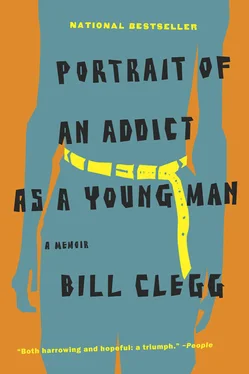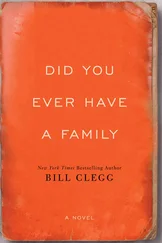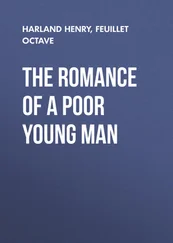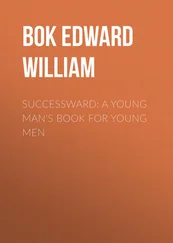Many years after the night with Fitz, he will remember Mrs. Parsons, his piano teacher when he was twelve. A heavyset Irishwoman who lived down the road who it seemed had at least eight children. She smoked and drank and gossiped and lived with all those kids in a small green house at the edge of a swamp. It looked like a witch’s house and sort of sagged into the hill behind it. One day he showed up for his lesson and it became instantly clear that he hadn’t practiced. Again. After he’d fumbled a little over a simple étude, she grabbed his hands and told him to stop. I can see it now, she thundered. You’re going to grow up and be a crack addict, just like Jackie DiFiore. No doubt in my mind. You are two peas in a pod.
Fitz goes into the bedroom and comes back with a small vial of what look like chunky milk-colored crystals. He pulls a clear glass tube from his pocket, something he calls a stem, and packs one end with small wire mesh and then a few small bits of the drug, or crumbs, as he says. Fitz carefully hands him the stem and tells him to put it to his lips as he pulls out a lighter. The glass tube is delicate and his hands are shaky. He’s afraid he’ll spill the drugs but somehow he does not. Fitz flicks on the lighter and passes the flame close to the end of the stem. He draws slowly as he sees the white substance bubble and pop in the flame. A pearly smoke makes its way down the stem, and he draws harder to bring it toward him. Fitz tells him to go gently and he does. Soon his lungs are full and he holds it the way he would hold pot smoke. He exhales and is immediately coughing. The taste is like medicine, or cleaning fluid, but also a little sweet, like limes. The smoke billows out into the living room, past Fitz, like a great unfurling dragon. As he watches the cloud spread and curl, he feels the high at first as a flutter, then a roar. A surge of new energy pounds through every inch of him, and there is a moment of perfect oblivion where he is aware of nothing and everything. A kind of peace breaks out behind his eyes. It spreads down from his temples into his chest, to his hands and everywhere. It storms through him — kinetic, sexual, euphoric — like a magnificent hurricane raging at the speed of light. It is the warmest, most tender caress he has ever felt and then, as it recedes, the coldest hand. He misses the feeling even before it’s left him and not only does he want more, he needs it.
Meanwhile, a silver-haired, handsome man from home has his arm around him, is stroking his leg and telling him he’s going to pack another hit, a bigger one, that they can share. This second time he tries as hard as he can to go slow, but Fitz says he’s still drawing too hard, that he’ll burn the stem. He barely pulls and again his lungs are full. Again he coughs and again, but bigger this time, there is this blast of feeling and not feeling, awareness of nothing and everything, a furious energy that makes him go still. Fitz takes the stem back and, after it cools, packs his own hit. While Fitz inhales, he motions him to come toward his lips and it’s clear that he is offering to exhale smoke into his mouth. And he does, and they start kissing.
Nothing before this has been as thrilling. This raging tempest streaking through his system as he kisses a man — the second or third he’s kissed — who is older than his father, whom he’s seen in the grocery store and library of his tiny town his whole life. They will make out, get naked, and move the whole project of stems and drugs and kissing into the bedroom. It will be a dizzy blur of smoke and skin, and it will be the only time he ever does this drug where doom does not eclipse bliss, where the two aren’t immediately at war. Doom will hit when he leaves a few hours later and realizes it’s near midnight and that he is in no shape to see Nell, his girlfriend — the person he has lived with for more than two years despite his growing attraction to men.
Before he leaves Fitz’s apartment he goes into the bathroom and carefully washes his hands, which have grown sooty and burnt from the hot stem. He washes his face and fixes his hair so it doesn’t look like he’s been thrashing around for hours. He checks his clothes, brushes off his blazer, makes sure all his shirt buttons are buttoned, his collar is straight, his fly zipped. Behind the locked door, in the tiny bathroom off the entryway, he runs through all of this — swiftly, mechanically — at least a dozen times. It’s as if he’s on autopilot, or responding to some primal, animal instinct to transform from one state to another. He pulls up his socks, rubs the spots off his shoe, and wipes his brow once more. As he checks his hair and gargles with the mouthwash he finds in the medicine cabinet, Fitz knocks a few times to make sure everything is okay. Be right out, he calls as he takes one last look in the mirror.
He hunts for a cab on Lexington and hopes Nell has gone to sleep. He is startled how time has changed shape, how six hours has felt like a few minutes. He worries he’s left something behind. He’s not sure what exactly — he has his wallet, his keys, his tie bunched in his blazer pocket — but he’s sure something is now missing.
This will be just before or just after the night he meets Noah. Certainly it is before he tells Nell he has to leave her, before he’s introducing Noah to his mother, who tells him he must not tell Kim, or anyone else in the family who might tell her, because the news might cause her to lose the twins she’s recently become pregnant with. Before he introduces Noah to his boss, his friends, and the writers he works with. It is before Noah is known to his world, but which came first — the night he met Noah, the night with Fitz — will never be clear. It was a time when everything seemed like a beginning.
Noah is the first thing I see when I step out of the elevator at the Maritime Hotel. Half crouched, on one knee, bearded and shaky, he appears both on the verge of sprinting and holding up his hands to protect himself from attack. And there’s something else — as if he’s been caught at something, as if somehow he is the guilty party. I haven’t seen him since the night at the Carlyle three days ago.
I sprint past him toward the lobby’s door. He calls and I don’t pause.
From somewhere else I hear: Billy!
Billy?
No one calls me Billy — no one but my family, friends from college, and people I grew up with — and I hear the name now as if it’s shouted across a dinner table from childhood.
Billy!
It’s my little sister, Lisa. I don’t see her but know it’s her voice. She’s twenty-five but already has a voice — smoke-choked and sad-shattered — that should have taken another twenty years to earn. It’s the kind of voice that to some sounds like a good time.
I scan the lobby as I move toward the main door, and there they are. My father. Kim. Lisa. My family. My family minus my mother and little brother, Sean. I can’t believe they’re here. My father would have had to come down from the hills of New Hampshire where he lives alone; my sister, Kim, from her husband and twin boys in Maine; Lisa from Boston.
I slow for a moment to make sure that the little man in the bright blue Windbreaker and gray New Balance running shoes, standing in the chic, dimly lit lobby of the Maritime Hotel, is actually my father. He has never once, in the twelve years I’ve lived in New York, stood on the island of Manhattan. He has never once seen where I’ve lived or the offices where I’ve worked. And, until now, he’s never met Noah. I wonder if I am hallucinating.
Willie, c’mon, the man stammers in a tight Boston accent.
It’s him. Looking like J. D. Salinger hauled out of rural seclusion and dropped into a big-city setting that could not appear less comfortable.
Читать дальше












